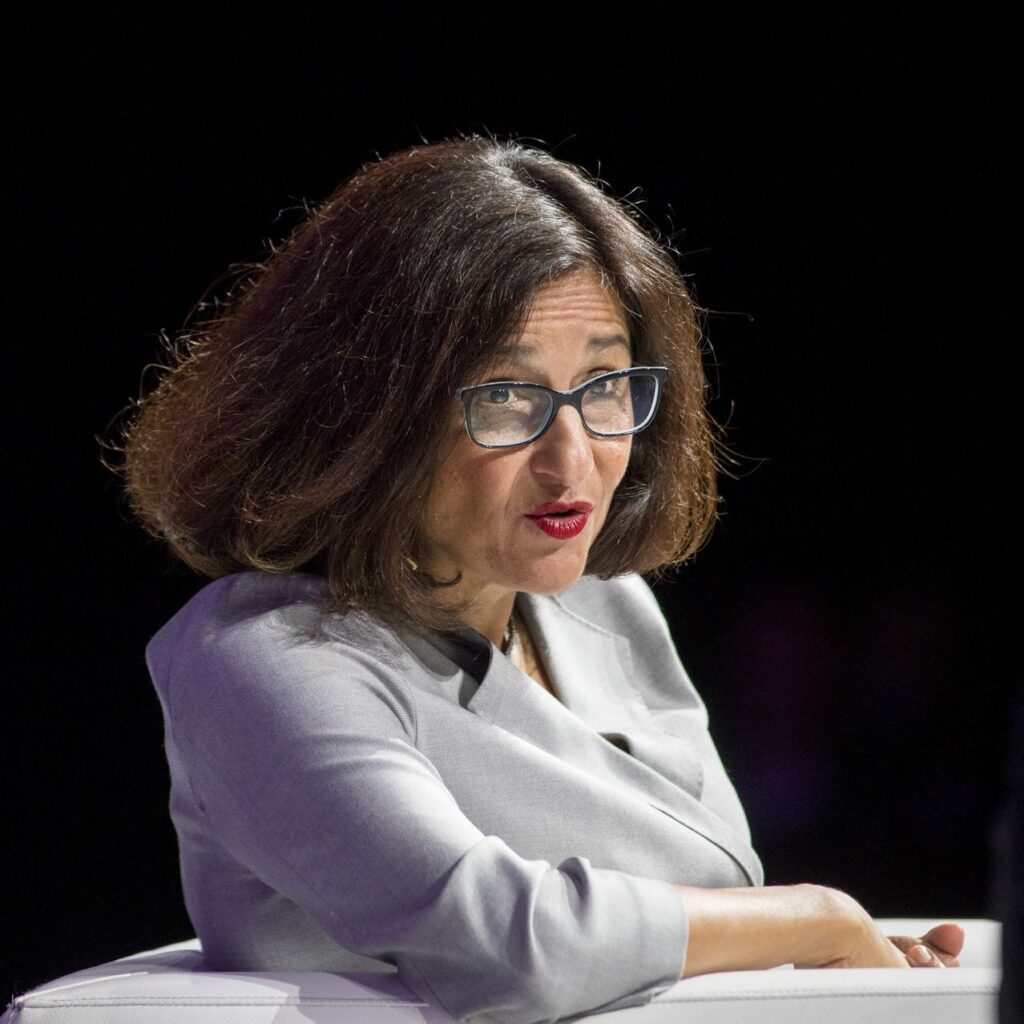Updated May 1, 2024 12:37 am ET
Columbia University President Minouche Shafik is facing increasing scrutiny for her handling of pro-Palestinian demonstrations, with calls for more decisive action mounting after she called in the New York Police Department to intervene on Tuesday night.
Late Tuesday, hundreds of police officers entered the university campus, breaching a building that had been occupied by protesters the previous day and dispersing encampments on school grounds.
Shafik’s response to the protesters has drawn criticism from various quarters, with some accusing her of being overly harsh and others of being too lenient.
Despite the criticism, Shafik still enjoys the support of the university’s board, at least for the time being. She has been in regular communication with trustees, navigating the complex demands of the board, faculty, alumni, students, and others involved.
Hitendra Wadhwa, a professor at Columbia Business School familiar with the board’s perspectives, praised Shafik’s approach, noting her ability to adapt to changing circumstances.
However, the situation at Columbia and for Shafik remains precarious and subject to rapid change.
Tensions reached a peak on Monday when pro-Palestinian protesters occupied an administration building. The situation escalated further on Tuesday as police intervened to clear the building and detain protesters.
In a letter to the New York Police Department on Tuesday, Shafik justified her decision, citing the need to protect individuals, property, and the university’s operations.
Prior to the police intervention, a group of alumni criticized Shafik for what they perceived as a lack of decisive action and called for stronger leadership.
While expressions of support from the board are currently in place, they do not guarantee indefinite backing. Similar situations at other universities, such as Harvard and the University of Pennsylvania, saw initial support for presidents erode over time, leading to their eventual resignations.
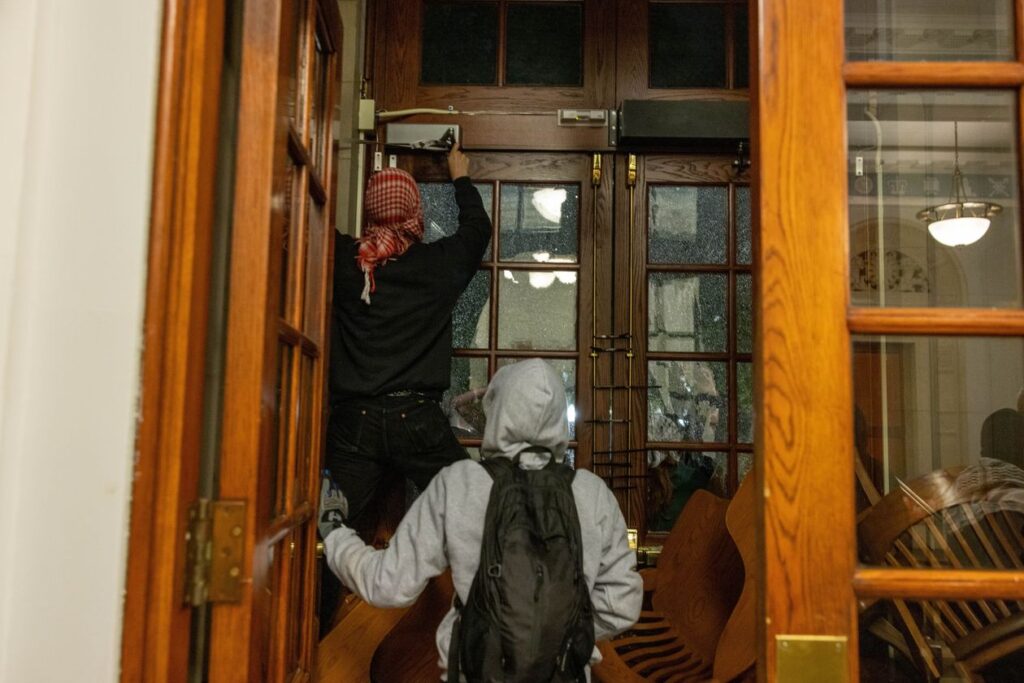
Pro-Palestinian demonstrators had barricaded themselves inside Columbia’s Hamilton Hall. PHOTO: ALEX KENT/GETTY IMAGES
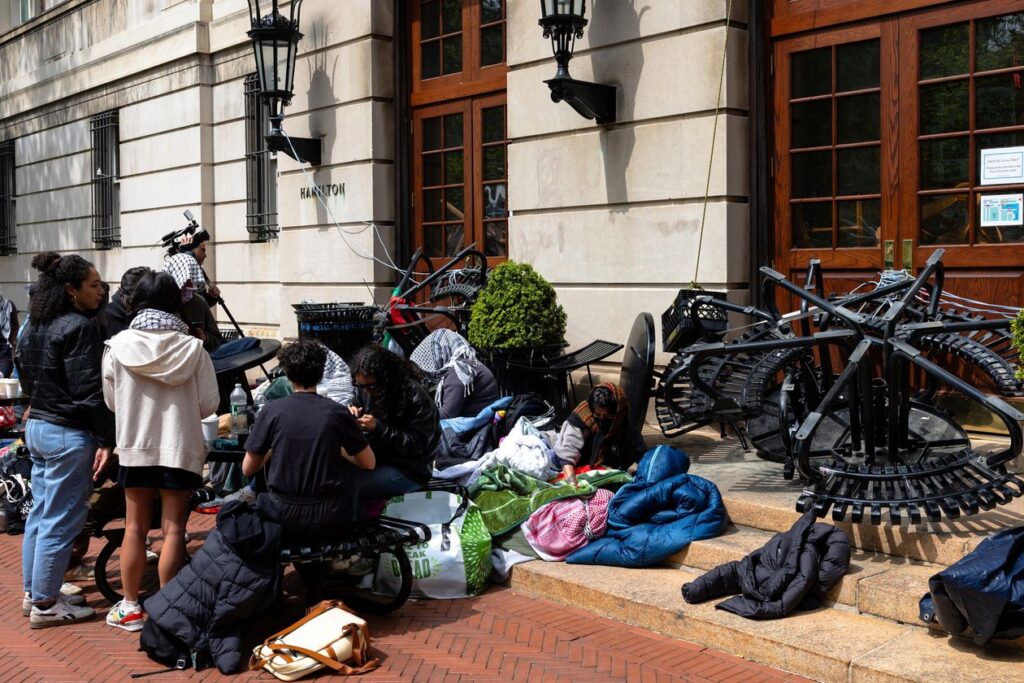
Pro-Palestinian protesters blocking an entrance to Hamilton Hall at Columbia University on Tuesday. PHOTO: MICHAEL M. SANTIAGO/ASSOCIATED PRESS
According to a source familiar with the board’s discussions, the Columbia board prioritized de-escalating the campus situation over determining Shafik’s long-term position as of Tuesday. Last week, the board affirmed its support for Shafik as she navigates the university through these challenging times.
Within the board, divisions have emerged regarding how to approach the protests as commencement and the end of the school year draw near, especially with classes already moved online. Some members advocate for a firmer stance and swift action, while others advocate for negotiation, de-escalation, and a gradual easing of tensions.
Pro-Palestinian demonstrators have accused Shafik of infringing on their freedom of speech and of lacking sincerity in negotiations. On the other hand, some Jewish students have criticized the administration for not addressing protests, arguing that it fosters an antisemitic and hostile environment.
Jacob Schmeltz, a senior at Columbia and vice president of the Jewish on Campus Student Union, expressed disappointment in Shafik’s response to concerns raised in a meeting last fall. Despite assurances from Shafik, Schmeltz feels that there has been insufficient follow-up action.
“We’ve seen a pattern of escalating tensions without meaningful action,” he remarked. “There’s been more discussion than concrete steps.”
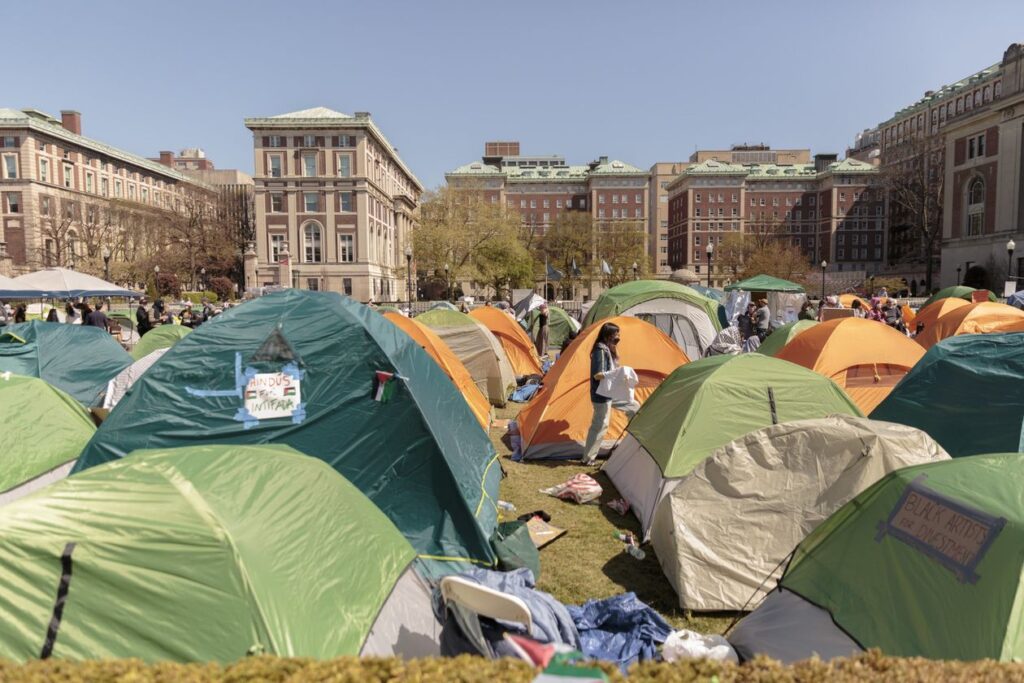
An encampment of pro-Palestinian protesters at Columbia. PHOTO: SARAH BLESENER FOR THE WALL STREET JOURNAL
In recent days, Shafik has escalated her response to the ongoing campus turmoil. Before calling upon the NYPD in response to a circulated alumni letter on Tuesday, Shafik issued an ultimatum to students barricaded inside Hamilton Hall: vacate the premises or face expulsion.
This ultimatum marks the latest development in a back-and-forth dynamic between students and Shafik, which intensified following her congressional testimony nearly two weeks ago. During her appearance, she discussed the parameters of acceptable classroom discourse by faculty, drawing criticism from some professors who subsequently called for her resignation.
The following day, demonstrators erected a tent encampment on the university’s main lawn. Shafik responded by deploying police to arrest over 100 students and protesters. This action spurred further demands for her resignation from students who felt their freedom of speech was infringed upon.
As the encampment was reassembled and protests reignited, advocates for Jewish students, who reported facing harassment and discrimination from demonstrators, urged Shafik to take stronger action.
Despite the mounting pressure, board members assert that Shafik has been actively engaged in mediating between various factions of disgruntled faculty, students, and alumni.
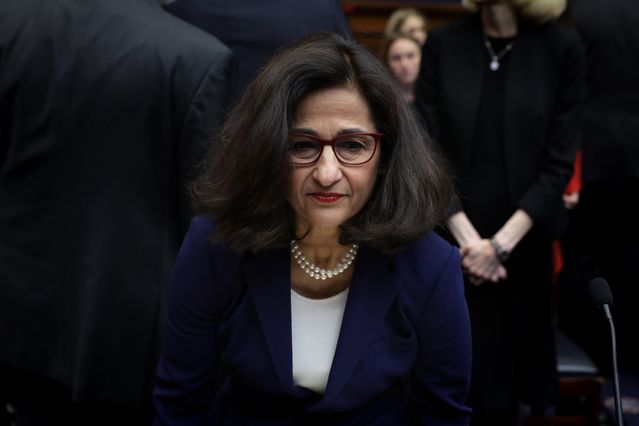
Shafik testified before Congress about two weeks ago, discussing limits on acceptable classroom speech by faculty. PHOTO: ALEX WONG/GETTY IMAGES
Shafik’s hiring was influenced by her proven track record in navigating challenging scenarios, as per a source close to the board. Her adept handling of conflict and upheaval during her tenures at the Bank of England, the London School of Economics, and the International Monetary Fund factored significantly into the board’s decision.
Her demonstrated ability to reconcile divergent interests made her a compelling choice for Columbia’s board, which, even prior to the October 7 attack by Hamas on Israel, recognized the existing divisions within the institution.
Shortly before the attack, the board enlisted Wadhwa’s assistance to foster unity among its members.
In a memo circulated among trustee members on Friday, Wadhwa emphasized that calls for Shafik’s resignation, though voiced on campus, do not necessarily indicate her unsuitability for leadership.
“There may be instances where a principled leader is steering the course, despite facing significant opposition,” Wadhwa wrote. “This is particularly relevant in a community marked by deep divisions, where the leader endeavors to temper emotions and establish equilibrium to avert further conflict.”

